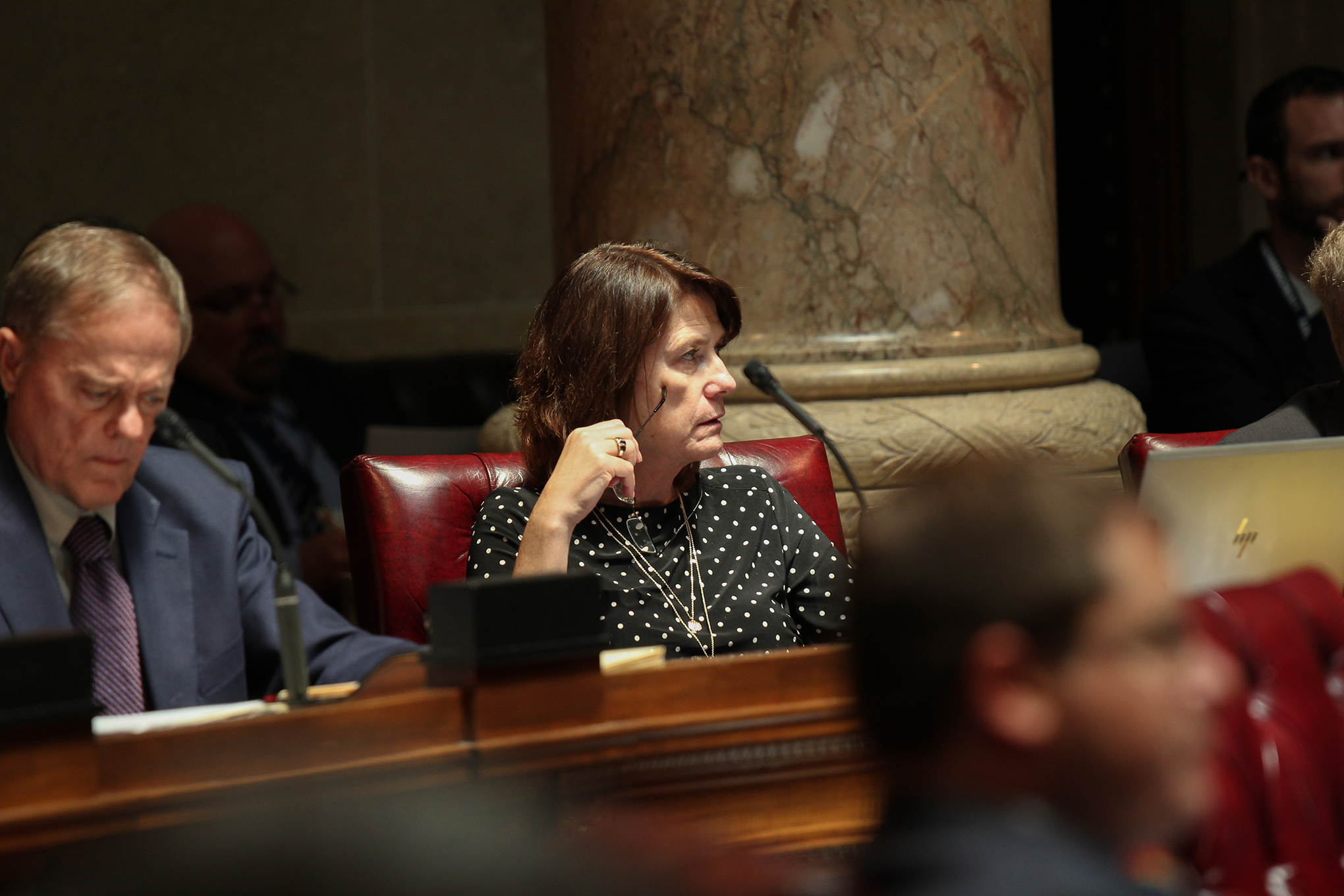The National Indian Gaming Commission (NIGC) has issued a $5.5 million fine to the St. Croix Chippewa Indians of Wisconsin. The commission alleges tribal council members, gaming commissioners and consultants used at least $1.5 million in gaming revenues to “line their own pockets.”
The commission cited the tribe last month with 527 violations after tribal council members improperly spent money without sufficient documentation. The NIGC could have assessed more than $27 million in fines for the violations it cited, which included tribal leaders who spent gaming revenues on bonuses and travel expenses. One council member used gaming revenues to pay for eight trips to New Mexico, Las Vegas and Hawaii.
Between 2015 and 2017, seven tribal members received more than half a million dollars in direct payments from the St. Croix Casino in Turtle Lake.
Stay informed on the latest news
Sign up for WPR’s email newsletter.
Jonodev O. Chaudhuri, commission chair, said in a May 9 letter that the misuse of money was a significant economic loss to the tribe. He added the tribe claimed it’s facing a precarious financial situation in response to the violations.
“In this matter, given the types of diverting (of) tribal program funds that existed, we can’t turn a blind eye to the contributions that this type of activity has made to the tribe’s current bottom line,” said Chaudhuri in an interview Monday with WPR.
The letter to the tribe details that the misuse of funds would likely have continued and gone undetected without the investigation by NIGC staff, noting those charged with regulating gaming revenues were involved in misappropriations. Chaudhuri said the money is intended to fund tribal government.
“In this matter, the people involved were not acting in Indian Country’s interest or the tribe’s interest and that’s why we took as firm a position as we took,” he said.
Chaudhuri called the tribe’s actions an anomaly in an industry that is very well-regulated by tribal, state and federal agencies. The public nature of the civil enforcement action demonstrates the seriousness of the commission, said Steven Light, co-director of the Institute for the Study of Tribal Gaming Law & Policy at the University of North Dakota.
“It becomes a potentially very public black eye at a time where actually the Indian gaming industry has been doing very well and where it’s been regulated soundly and where there are few demonstrated instances of criminal activity or corruption,” Light said.
Light said he couldn’t recall another instance of such activity since former lobbyist Jack Abramoff was indicted in 2006 for defrauding four Native American tribes that were operating or looking to run casinos by charging fees to generate huge profits.
Chaudhuri said tribal officials refused to accept responsibility in response to the violations, which are the only recorded in the past five years.
“Although there was some changes of positions that were proposed, there was nothing put into place that shows either a full taking of responsibility by the individuals and the group involved or putting true safeguards in place to ensure avoidance of the types of matters that came to our attention,” he said.
The violations could possibly result in criminal charges, said Kathryn Rand, co-director of the Institute for the Study of Tribal Gaming Law & Policy at the University of North Dakota.
“Embezzlement if it is from casino revenue actually is a particular kind of federal crime,” she said. “Embezzlement of tribal funds generally might also be a federal crime as well.”
Chaudhuri declined to say whether any referral has been made for criminal charges. Both Rand and the commission chairman said a settlement is one option for the tribe moving forward. Other types of enforcement actions could be taken, which could include closure of the casino.
“Closure of the casino would certainly harm the tribe’s revenue stream,” said Rand. “I don’t see that on the horizon so long as the fines are settled or honored.”
The problem that the St. Croix tribe is facing is not unique, said Richard Monette, director of the Great Lakes Indigenous Law Center at University of Wisconsin-Madison.
“This one is so frustrating because this is a structural problem that is fixable,” Monette said.
He said the underlying issue is the relationship between tribal governments, their gaming commissions and gaming operations. He said the federal government has set up a system for tribes to govern and to do business that spreads confusion and invites corruption or something that has the appearance of corruption.
“Corrupt tribal leaders are not unheard of,” he said. “But, sometimes, the intent is not as bad as it looks.”
Tribes must create a separation of powers to create balance in the regulation of gaming revenues and prevent political intervention. Like all tribes operating under this system, Monette said both their regulatory and business activities are often subject due to undue political influence by the council.
Tribal chairman Lewis Taylor reached Monday referred all comments to the tribe’s economic development corporation. A call to the tribe’s economic development corporation resulted in a hang-up. The tribe’s attorneys did not immediately return requests for comment Monday.
The commission issued a $1.5 million fine for payments made to Tribal Council Member Elmer “Jay” Emery and his company Rez Connections. A $1 million fine was assessed for payments made to Jeff Taylor and Kate Wolfe Taylor of the St. Croix Tribal Gaming Commission. A $1 million fine was issued for payments made to Tribal Chairman Lewis Taylor, Tribal Council Member Crystal Peterson and former council members Carmen Bugg and Stuart Bearhart. A $1.5 million fine was also given for payments to consultant Lawrence Larsen. A $500,000 fine was issued for misuse of revenue and failure to audit contracts greater than $25,000.
The tribe has 30 days within the date of the letter to appeal the commission’s decision.
Wisconsin Public Radio, © Copyright 2024, Board of Regents of the University of Wisconsin System and Wisconsin Educational Communications Board.






